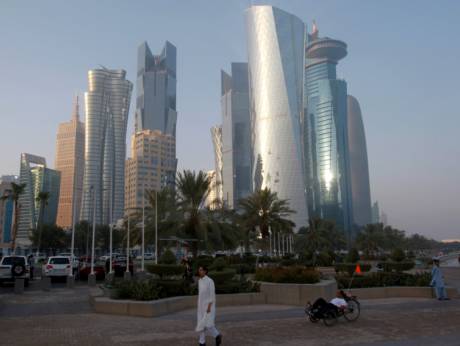Tabish Iqbal
The report of UNAMA released this year depicts that in Afghanistan the number of civilians in the war remained on “record high levels” in the first six months of 2017, with Kabul remaining the most affected city in the country. These are the two main features that stand out in UNAMA’s released mid-year report on the protection of civilians in armed conflict. A number of 1,662 Afghan civilians have been documented as killed and 3,581 more as injured in the first six months of 2017. The report showed that the total number of civilian casualties decreased slightly, by 24 persons in total (or 0.5 per cent) compared to the same period in 2016.
The deteriorating security situation in Afghanistan is waxed with multiple layers of follies piled up by numerous stake holders. The US think tanks believe that the Afghan Taliban led insurgency is one of the most consequential threats to US, they categorized the insurgents as rigid and unwavering to end the war. The reasons for Taliban movement resilience are termed multifarious, mainly ranging from religious ideologies, Pashtun nationalism to governance issues. Another prevailing view of the think tank is the rationale that changing religious or ethnic sentiments is an unrealistic goal for US, however, regarding the alleged sanctuaries on the Pakistani territory, they have established a belief that it plays a critical role in providing tactical gains for the insurgents in Afghanistan and therefore it needs to be addressed and to them the only solution to address the Afghan problem is to prolong and enhance the US military footprint in Afghanistan. Experts believe that its not a correct finding, as it defies the logic of their own war efforts. While alleging Pakistan and putting blame of its support to Haqqani Network, why US tend to avoid the fact that most of the operations carried out in Afghanistan till date confirms the presence of all the terrorists in Afghanistan including Haqqani network and Afghan Taliban. Pakistan has launched massive military operations in the bordering areas near Afghanistan , killing and apprehending a considerable number of terrorists including Haqqani network , some had been handed over to US. Its beyond apprehension that why US continuously blame Pakistan of supporting these terrorists despite of its cooperation on the issue. Logically examining the problem, if there are difficulties in tackling these terrorists, one seek help and collaborate with others; to defeat the monster, but illogically putting blame on others would never resolve the problems. Contrary to logical move towards the solution, intensifying pressure on Pakistan to take decisive actions against those groups, remains a dominant theme in US administration as well as in political circles. US administration seems committed to address the core issue related to Afghan Taliban including the resources which are supporting the Afghan Taliban’s resilience, but they are not ready to address the root causes of the issues. On the other hand, the weaknesses of the Afghan state are regrettably in abundance. US think tank also believe that there is a lot of fundraising in Middle East countries to support these insurgencies and terrorist activities around the world in general and Afghanistan in particular. The attitude of the Afghan government towards Pakistan is also not justified as comparatively Afghanistan is receiving more benefits from Pakistan, whereas the latter has been receiving harms instead, despite its tolerance and bearing the high price of Afghanistan’s evident and hidden hostilities, it has never blankly pointed fingers on Afghanistan. Pakistan had always present her cases having clear evidences and there are numerous such instances and the Afghan government is very much conversant with this fact but never reciprocated the same. In addition, Pakistan has always been conveying and sharing the evidences regarding the involvement and utilization of Afghan soil against Pakistan. However, Afghanistan has never taken into account those evidences and no action has ever been taken against the terrorists hiding and utilizing the Afghan soil. Astonishingly, in Afghanistan, whenever there is any security failure, it is immediately blamed on Pakistan, not even waiting for the forensic or the initial reports or evidences. Afghanistan media has been tamed by their Indian friends, with a set pattern of reporting against Pakistan, which always headline Pakistan’s involvement first and later cover the occurred incident. It is kind of a typical Indian approach towards Pakistan. Experts are of the opinion that if the Afghan government would continue with the negative attitude towards Pakistan on the behest of India, then the peace cart could be dragged at the point of no return, which could disturb the region and ultimately result into the crisis of global peace.
it is very unfortunate that every US high level personality visiting Pakistan or the Congressional delegations visiting Afghanistan and Pakistan seems keen to hammer the Pakistan government. The recent visit of US senator John McCain and his completely biased statement against Pakistan, confirms due deliberation at higher level. In US think tank community, the prevailing sentiment about Pakistan’s relations with key players (China and KSA) are termed as having the leverage with Pakistan, one is considered China, and the second one is Saudi Arabia. Experts have a firm view that the West including US may exhaust their peace efforts in vain, if the Pakistan’s positive role in stabilizing Afghanistan is neglected. There exists multifaceted internal fault lines within Afghanistan; with correct and in time reforms, all the issues could be resumed. However, the interlinked nexus of corruption and terrorism ,which is rightly considered as the most rigid and critical threat to Afghanistan, after its security issue , needs to be addressed by the Afghan government at priority without blaming other nations.



